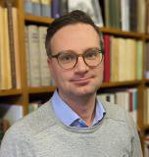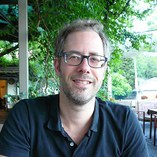These ERC grantees choose Ghent University for their next career move
(08-11-2023) At the start of the academic year, we once again welcomed a number of international professors to our university. Among them also ERC grantees. Why did they choose Ghent University as their new base?
Anna Tummers - Faculty of Arts and Philosophy, Department of Art, Musicology and Theatre Studies

Another important factor for me was the enthusiasm I encountered at all levels: the department, the EU Team, the support services, the dean, faculty and even the rector made me feel particularly welcome, which I really appreciate."
More about Anna’s ERC-project ARTDETECT
Forgeries in the styles of old and modern painters have recently caused much consternation. The ARTDETECT research project will focus on developing a new kind of connoisseurship (i.e. the evaluation of the characteristic qualities, the dating and the attribution of works of art). Art-historical methods, chemical analysis and advanced computer science will be combined in a systematic, coherent way to predict high risks. The aim is, first, to gain new insight into significant anomalies in forged paintings (and the main characteristics of comparable originals); and, second, to develop checklists and ‘smart tools’ (computer programs) that enable art experts to quickly and effectively select potential forgeries for further examination; and ultimately to give connoisseurship a new scope and relevance.
Christopher Markiewicz - Faculty of Arts and Philosophy, Department of Languages and Cultures

Finally, Ghent is a beautiful city, but also a really livable place to raise a family. The university understands the challenges of moving internationally with a family and has been very supportive in this regard. This was really fundamental in our decision to come to Ghent.”
More about Christopher’s ARC-project OTTWAQF
OTTOWAQF will investigate how pious endowments shaped state-building in the Ottoman Empire during a critical period between 1450 and 1650. Pious endowments controlled vast tracts of land and property across the empire in support of mosques, schools, hospitals, and many other charitable activities. As a result, they constituted the most widespread and powerful social institutions within the empire and across Islamic lands. Even so, their role in state formation has been overlooked. OTTOWAQF will examine the political and economic impact of endowments on the state to produce a new model of state power in the Ottoman Empire that accounts for the participation of a diverse range of social actors from across the empire in the development of the early modern Ottoman state.
Samuël Coghe – Faculty of Arts and Philosophy, Department of History

Moreover, family reasons also played an important role. After more than 20 years abroad, Ghent was, in terms of size and life quality, the ideal city for me and my family to (re)settle.”
More about Samuël’s ERC-project CATTLEFRONTIERS
This project explores the transformation of cattle economies in Southern and Central Africa during the colonial and early postcolonial period. From the 1890s to 1970s, (post)colonial governments, scientists, entrepreneurs and settlers promoted a broad range of interventions to overcome the allegedly uneconomic attitudes of African pastoralists and turn cattle into profitable commodities. CATTLEFRONTIERS breaks new ground by offering the first history of these transformation processes from hoof to table, for multiple empires and over a long time frame. The project critically uses the concept of ‘commodity frontiers’, from the global history of capitalism, to analyse the historical transformation of Africa’s cattle economies from multiple (social, economic, ecological and scientific) perspectives.